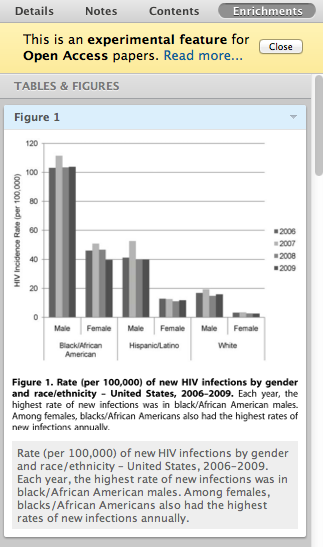Mendeley Desktop 1.13 is now available for Windows, Mac and Linux. This update has largely been about under-the-hood work on sync functionality to make it faster and enable you to access it across a wider range of platforms. Coming soon, you’ll be able to access your Mendeley library from our upcoming new web and Android apps, plus a revamped iOS app.
We’ve also been working on improving the PDF import functionality. The new release of Mendeley will automatically update imported documents with details of the matching entry in our catalog, enabling you to cite the paper without further corrections more often.
New and improved in this release
Faster Sync
In addition to enabling new first and third-party apps for accessing your Mendeley library, the new sync infrastructure allows faster and more data-efficient sync of large libraries. Syncing a typical library is now 2-3x faster. If your library is large (many thousands of entries) or you are on a slower connection, the benefits will be much greater.
Catalog Import
Mendeley Desktop matches papers you import to entries in our catalog which combines data from users and other sources, providing readership statistics, popular tags and other information for papers. In Mendeley Desktop 1.13 we’ve added an Update Details option to import data from the catalog into your Mendeley library. This should save you time when you come to cite the paper. To use it, just select a group of entries in your library, right click and select Update Details:
Mendeley will then refresh the details with the latest version of the entry from our catalog:
Hit the ‘View research catalog entry for this paper’ link to see more about the paper on Mendeley. Where the author is on Mendeley themselves and has uploaded the paper to their My Publications folder, you can also connect with them:
Early access to new Mendeley features
If you’d like to get early access to new Mendeley releases, you can opt-in to our preview releases via Help -> Check for Updates -> Opt-in to Experimental Releases in the app. The current preview release is a bug-fix update which addresses several of the top causes of crashes in the app.
New for Developers
This release of Mendeley Desktop is built entirely upon our new API which is also available for public use. Unlike our previous public API, the new platform provides access to all of the data which is displayed in Mendeley Desktop including documents, folders, annotations, file attachments and metadata lookup. If you want to build your own tools that use Mendeley’s data, check out our developer portal.
















